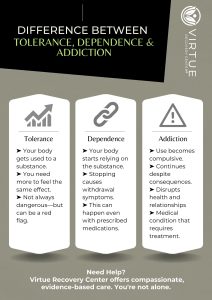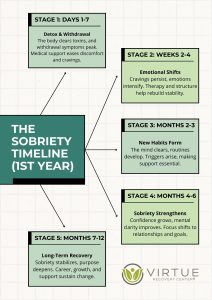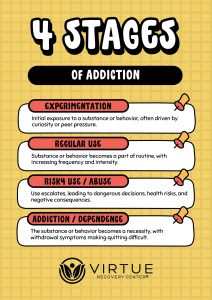Key Takeaways
- Antisocial Personality Disorder (ASPD) is closely linked to substance abuse, including alcohol and drug use.
- Individuals with ASPD often engage in risky behaviors, which increase the likelihood of substance use disorders.
- Early diagnosis and proper treatment can help break the cycle of antisocial behavior and substance abuse.
- Substance abuse can worsen antisocial behaviors, making treatment and recovery more challenging.
Introduction
Antisocial Personality Disorder (ASPD) is a mental health condition that affects how a person interacts with others. People with this disorder often engage in harmful or manipulative behaviors, and they frequently disregard social norms. But is there a connection between ASPD and substance abuse? Studies show that individuals with ASPD are more likely to struggle with substance use disorders such as alcohol or drug addiction. Understanding the link between these conditions is critical, especially when creating effective treatment plans that help break the cycle of addiction.
Let’s explore the relationship between ASPD and substance abuse and how treatment centers can help those affected.
What is Antisocial Personality Disorder (ASPD)?
Antisocial Personality Disorder (ASPD) is a condition where a person consistently behaves in ways that are harmful or socially unacceptable. They often have little regard for others’ feelings and may not feel guilt for their actions. People with ASPD may break laws, lie, or manipulate others to get what they want. They also tend to have difficulty forming healthy relationships.
According to the Diagnostic and Statistical Manual of Mental Disorders (DSM-5), ASPD is diagnosed based on patterns of antisocial behavior that start in childhood or early adolescence. Many individuals with ASPD show signs of conduct disorder during their teenage years, which can include behaviors like bullying, destroying property, or stealing. As they grow older, these behaviors often become more serious, leading to criminal activities or substance abuse.
ASPD affects a small portion of the population, but it is more common in individuals who also suffer from substance use disorders. This link suggests that the impulsive, risk-taking nature of ASPD may make someone more vulnerable to drug or alcohol misuse.
The Link Between ASPD and Substance Abuse
There is a clear connection between ASPD and substance abuse. People with ASPD are more likely to engage in substance use disorders, such as alcohol abuse, cocaine use, and other types of drug misuse. But why is this the case? The behavioral traits of people with ASPD play a significant role.
Individuals with ASPD often exhibit impulsive behaviors. They are more likely to engage in risky activities, including substance misuse. Their disregard for consequences means they might not think about the long-term effects of drug or alcohol use. Instead, they focus on immediate rewards, like the temporary relief or pleasure that substances may bring.
Studies, like the National Epidemiologic Survey on Alcohol and Related Conditions, show that people with ASPD are significantly more likely to develop substance use disorders. Many individuals with ASPD use substances as a way to cope with their antisocial tendencies or mental health challenges. Unfortunately, substance abuse often worsens their antisocial traits, making it even harder to break the cycle of addiction.
This harmful combination of antisocial behaviors and substance abuse can create a downward spiral. The more a person abuses drugs or alcohol, the more their antisocial behaviors intensify, leading to more severe addiction and difficulties in relationships, employment, and legal issues.
Substance Use Disorder in People with Antisocial Behavior
For individuals with ASPD, substance abuse is often more severe than in those without the disorder. People with ASPD tend to use more dangerous substances, such as cocaine, cannabis, and opioids. They may also engage in polysubstance use, which means using more than one drug at the same time. This risky behavior increases the chances of addiction, overdose, and long-term health problems.
Another reason why substance use disorders are so common among people with ASPD is their personality traits. Impulsivity, irritability, and a lack of concern for others can drive a person to misuse substances without thinking about the impact on themselves or their loved ones. These traits also make it harder for them to seek help or stick with a treatment plan.
In addition to substance use disorders, many people with ASPD also struggle with co-occurring disorders, such as Post-Traumatic Stress Disorder (PTSD) or Major Depressive Disorder (MDD). These mental health conditions can make their antisocial behaviors even worse, especially if they are not receiving proper treatment for both their substance abuse and their mental health.
ASPD and Substance Abuse Disorder Treatment Options
Although treating ASPD and substance abuse together can be challenging, it is not impossible. The key is early intervention and a well-rounded treatment plan; for individuals with both ASPD and a substance use disorder, dual diagnosis treatment is essential. This approach focuses on treating both conditions simultaneously, increasing the chances of successful recovery.
Some of the most effective treatment options include:
- Cognitive Behavioral Therapy (CBT): CBT helps individuals understand and change their harmful thoughts and behaviors. It benefits people with ASPD by teaching them how to manage their impulses and make better decisions.
- Dialectical Behavioral Therapy (DBT): DBT focuses on emotional regulation and distress tolerance. This type of therapy helps individuals with ASPD cope with their emotions more healthily, reducing the likelihood of turning to substances for relief.
- Residential Treatment Programs: In cases of severe substance abuse, residential treatment centers, such as Virtue Recovery Las Vegas, offer a safe and structured environment where individuals can focus on their recovery. These programs often include therapy, medical care, and group support to help individuals manage both their antisocial behaviors and substance use disorders.
Successful treatment for people with ASPD and substance abuse requires an individualized approach. Treatment centers that offer personalized plans, like Virtue Recovery Las Vegas, can provide the specialized care needed to address both conditions simultaneously. This holistic approach improves the chances of long-term recovery and reduces the risk of relapse.
Conclusion
Antisocial Personality Disorder (ASPD) and substance abuse are closely linked. People with ASPD are more likely to misuse drugs and alcohol due to their impulsive behaviors and disregard for consequences. However, with early diagnosis and the right treatment plan, it is possible to break the cycle of addiction and help individuals lead healthier, more fulfilling lives.
If you or a loved one is struggling with ASPD and substance abuse, call Virtue Recovery Las Vegas at 866-520-2861 to get the help you need today.
FAQs Abuse Cause of Antisocial Personality Traits and Drug Abuse
What is Antisocial Personality Disorder (ASPD)?
ASPD is a mental health condition where individuals show a disregard for others, break social rules, and often engage in harmful or illegal behaviors.
How is substance abuse linked to ASPD?
People with ASPD are more likely to misuse substances due to their impulsive and risk-taking behaviors. This often leads to substance use disorders.
Can ASPD and substance abuse be treated together?
Yes, dual diagnosis treatment focuses on addressing both ASPD and substance abuse at the same time, improving recovery outcomes.
What substances are commonly abused by individuals with ASPD?
Common substances include alcohol, cocaine, cannabis, and opioids. Individuals with ASPD may also engage in polysubstance use.
Is treatment for ASPD and substance abuse effective?
Yes, treatment can be highly effective with the right therapies, such as CBT and residential programs.
What are the symptoms of antisocial personality disorder?
Symptoms of antisocial personality disorder (ASPD) include a disregard for the rights of others, frequent lying or deceit, impulsive behavior, irritability, aggression, and a lack of remorse after hurting others. Individuals with ASPD may also engage in risky or illegal activities, often leading to conflict with the law.
Does cognitive behavioral therapy work in treating ASPD and drug use?
Cognitive Behavioral Therapy (CBT) can be effective in treating both antisocial personality disorder (ASPD) and substance use, particularly by addressing negative thinking patterns and improving impulse control. However, treatment success varies, and a combination of therapy and medication is often recommended.
What is antisocial personality disorder linked to?
Antisocial personality disorder (ASPD) is linked to substance use disorders, criminal behavior, and difficulties in maintaining relationships. It is also associated with childhood trauma, neglect, and conduct disorder in adolescence.
How does substance abuse affect personality?
Substance abuse can exacerbate existing personality traits, leading to increased impulsivity, irritability, and aggressive behaviors. Over time, addiction can cause long-term changes in brain function that further alter personality, making individuals more prone to risky or harmful behavior.
What are the habits of people with ASPD?
People with ASPD often display manipulative and deceitful behavior, show little regard for rules or societal norms, and engage in impulsive, risky activities. They may also have a history of criminal behavior, frequent conflicts with others, and a lack of empathy or guilt for their actions.
What are the roots of antisocial personality disorder?
The roots of antisocial personality disorder often lie in a combination of genetic predisposition and environmental factors, such as childhood trauma, abuse, neglect, or inconsistent parenting. Early conduct problems in childhood, such as aggression and rule-breaking, are often predictors of ASPD.
What are two types of addictive behavior?
Two common types of addictive behavior include substance addiction, like drug or alcohol dependency, and behavioral addictions, such as gambling or compulsive shopping. Both types of addiction involve compulsive engagement in rewarding stimuli despite harmful consequences.
What are the treatments for comorbid substance use disorder and mental health conditions?
Treatments for co-occurring substance use disorders and mental health conditions typically involve integrated care, which addresses both issues simultaneously. This may include a combination of medication, psychotherapy (like CBT or DBT), and support groups to help manage both conditions.
What is Substance Use Disorder?
Substance Use Disorder (SUD) is a medical condition characterized by an inability to control the use of a substance despite harmful consequences. It involves patterns of abuse, dependence, and withdrawal symptoms and can include the use of drugs, alcohol, or other addictive substances.
Resources
https://pmc.ncbi.nlm.nih.gov/articles/PMC2676780/
https://www.sciencedirect.com/science/article/abs/pii/S221265701830093X
https://modlab.yale.edu/sites/default/files/files/BrennanCurrentOpinion.pdf













